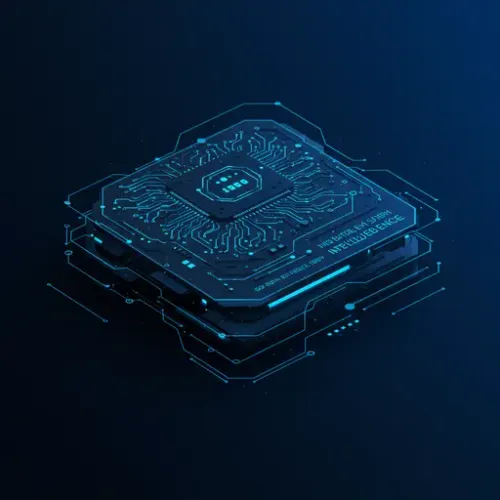Exploring the rise of artificial intelligence company OpenAI

The AI Report
Daily AI, ML, LLM and agents news
Understanding the AI Revolution: Exploring the Rise of OpenAI and Its Impact
Artificial intelligence is not just a buzzword; it's a transformative force reshaping industries, economies, and daily life at an unprecedented pace. At the forefront of this revolution stands OpenAI, the company responsible for groundbreaking advancements like the conversational AI model, ChatGPT. Understanding the journey and impact of such a pivotal organization is crucial for anyone navigating the modern world.
A key resource for delving into the origins and ascent of this powerful entity is explored in discussions surrounding new works that examine its trajectory. These insights often highlight the critical role of figures like Sam Altman and the intricate history of OpenAI itself, tracing its evolution from a research-focused non-profit to a global technology leader influencing the direction of AI development worldwide.
The story of OpenAI is more than just a corporate history; it's a case study in rapid innovation, the challenges of scaling cutting-edge technology, and the profound societal implications that arise when powerful AI capabilities become widely accessible. By exploring its rise, we gain valuable perspective on the forces driving the current wave of technological change and the potential future landscapes AI is creating.
Why Understanding OpenAI Matters: Key Takeaways and Benefits
The prominence of OpenAI and its technologies like ChatGPT underscores several vital points for individuals and businesses alike. First, it demonstrates the accelerating capability of machine learning models to understand, generate, and interact with human language in remarkably sophisticated ways. This capability isn't confined to theoretical discussions; it has practical applications ranging from automating customer service and generating creative content to assisting with complex research and programming tasks.
A significant benefit of grasping OpenAI's impact is the ability to anticipate and adapt to technological shifts. Their developments often set benchmarks and reveal potential pathways for future AI applications across various sectors, including education, healthcare, finance, and entertainment. Staying informed means being better prepared to leverage new tools, identify opportunities, and mitigate potential disruptions in your own field or career.
Furthermore, understanding the 'empire' aspect – the scale, influence, and power wielded by leading AI labs – is essential for engaging with the broader ethical, economic, and governance discussions surrounding AI. As these technologies become more integrated into societal infrastructure, questions about bias, data privacy, job displacement, and the concentration of technological power become increasingly urgent. Informed citizens and professionals are better equipped to participate constructively in shaping policies and norms for the responsible development and deployment of AI.
Navigating the Age of AI: Practical, Actionable Advice
Given the pervasive influence of OpenAI and similar entities in the AI landscape, what practical steps can you take to thrive in this evolving environment? Here is some actionable advice:
1. **Educate Yourself Continually:** The field of AI is dynamic. Start by learning the basics of what models like ChatGPT can do and how they work at a high level. Follow reputable news sources, read accessible books (like the one mentioned, 'Empire of AI', or others covering the topic), and explore online resources. A foundational understanding demystifies the technology and helps you separate hype from reality.
2. **Experiment Responsibly with AI Tools:** The best way to understand AI is often by using it. Explore tools powered by models like GPT for tasks relevant to your work or personal life, such as drafting emails, brainstorming ideas, summarizing long texts, or even learning new skills. Pay attention to the tool's strengths and limitations, and be critical of its outputs. Understand that these are aids, not infallible sources.
3. **Assess AI's Potential Impact on Your Field:** Think specifically about how AI technologies, particularly generative models, could automate tasks, create new roles, or change workflows in your industry. Proactive assessment allows you to identify areas where you might need to acquire new skills or where your existing skills can be enhanced by AI tools.
4. **Develop Complementary Skills:** Focus on developing skills that AI currently struggles with, such as critical thinking, complex problem-solving, creativity, emotional intelligence, and ethical reasoning. These human-centric abilities are becoming increasingly valuable as AI handles more routine or data-intensive tasks. Learn to collaborate *with* AI, treating it as a powerful assistant rather than a replacement for human judgment.
5. **Engage in the Conversation:** AI's development and regulation are subjects of global importance. Stay informed about the ethical debates, policy discussions, and research advancements. Form your own educated opinions and be prepared to discuss the opportunities and challenges of AI with colleagues, friends, and within your community. Your perspective matters in shaping the future of these technologies.
Looking Ahead
The rise of companies like OpenAI signals a new era defined by the capabilities of artificial intelligence. By taking the time to understand their journey, the technology they develop, and the broader implications, we position ourselves not just to witness this transformation, but to actively participate in it. Embracing a mindset of continuous learning and responsible engagement with AI tools and their creators is the most valuable strategy for navigating the fascinating and complex 'Empire of AI' that is rapidly unfolding around us.

The AI Report
Author bio: Daily AI, ML, LLM and agents news
